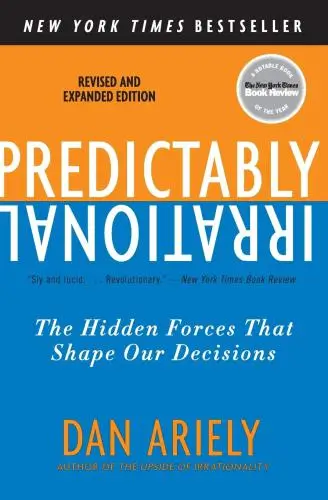
Predictably Irrational
The Hidden Forces That Shape Our Decisions
What's it about?
Predictably Irrational by Dan Ariely unveils the quirks of human behavior, proving that we're predictably irrational. Through captivating experiments and real-life examples, Ariely reveals how our decisions are influenced by hidden biases. Discover why we splurge on unnecessary items, why freebies captivate us, and how our emotions impact our choices. This eye-opening exploration of the irrational side of our minds will leave you questioning your every decision and craving more insights into the fascinating world of human behavior.
About the Author
Dan Ariely, a captivating behavioral economist, explores the quirks of human decision-making in books like "Predictably Irrational." With engaging anecdotes and experiments, he unveils the hidden biases that shape our choices. Ariely's work offers fresh perspectives on psychology, economics, and the intricacies of our rationality.
8 Key Ideas of Predictably Irrational
- The Power of Relativity and Anchoring
- The Allure of Free and Social Norms
- Emotional States and Decision-Making
- Procrastination, Self-Control, and Ownership
- Balancing Options and Managing Expectations
- The Power and Dilemma of Placebo
- Trust, Dishonesty, and the Need for Integrity
- The Influence of Uniqueness on Choices
Have you ever noticed how our decisions are influenced by the choices presented to us? The principle of relativity plays a significant role in shaping our preferences and guiding our actions. Whether it's choosing a subscription plan, buying a house, or even finding love, relativity affects our decision-making process.
Let's explore the art of influence and how we can leverage the power of relativity to our advantage:
The Decoy Effect Unveiled: In an experiment at MIT, students were shown photographs of people, some regular and others slightly less attractive. Surprisingly, the presence of the less attractive photos led participants to choose the regular, more attractive ones 75% of the time. This demonstrates the power of the decoy effect in influencing our choices.
The Bread Maker Riddle: Another experiment revealed that introducing a pricier bread maker increased sales of the more affordable model. The mere existence of a decoy option for comparison had a profound impact on consumer choices.
Leveraging the Decoy Effect in Dating: Want to appear more attractive? Bring a friend who is slightly less attractive as your wingman or woman. This clever move can make you shine even brighter in comparison.
The Salary Struggle: The publication of CEO salaries has fueled a race for higher executive compensation. Our job satisfaction often depends on how well we fare relative to others.
However, the dark side of CEO pay is that it contributes to societal inequality and demands for even higher salaries.
To conquer the relativity challenge in decision-making, we need to broaden our horizons and focus less on excessive comparisons. For example, when making purchases, instead of narrowing our gaze to local prices, we should think expansively about how to make the most of our finances.
Learning from James Hong, the co-founder of Hotornot.com, we can break free from the never-ending pursuit of more. He chose to downgrade from a luxury car to a more practical one, realizing that excessive comparison is a fruitless endeavor.
While attractiveness is relative, it's best to keep strategies like the decoy effect under wraps when it comes to dating.
The Traveler's Paradox teaches us that the bonds we form while traveling may feel profound, but they may lose their luster when we return home. Relativity plays a role in this, so don't be surprised if the magic dims.
In summary, relativity shapes our choices and perceptions in various aspects of life. By being aware of its influence, we can make more rational decisions and protect ourselves from subsequent disillusionment.
Anchoring: The Power of Initial Judgments
Salvador Assael, the renowned "pearl king," achieved great success by understanding the power of anchoring. Anchoring refers to how our initial judgments shape our perception of prices. This concept was demonstrated through an experiment involving MBA students and their social security numbers. Surprisingly, the arbitrary initial prices they encountered had a profound impact on their future purchasing choices.
Anchoring's influence extends beyond price tags. For example, people often cling to housing price norms from their previous locations when they relocate, unaware of the divergence in cost structures.
The enduring sway of initial anchors was further confirmed in an experiment where participants were exposed to different sounds associated with distinct price anchors. The initial anchor significantly influenced their subsequent pricing demands, highlighting the lasting impact of first impressions.
Participants also exhibited self-herding behavior, gravitating towards pricier alternatives without questioning their worth. This demonstrates the power of habituation and the influence of initial encounters on long-term habits and consumer preferences.
Starbucks successfully shifted the anchor from more modestly priced coffee to their upscale brews by creating a unique ambiance and branding. This emphasizes the importance of initial encounters in shaping preferences.
Anchoring's impact goes beyond prices. Inspired by Tom Sawyer's fence-painting ruse, an experiment explored how anchoring affects bids for a poetry reading. The results were astonishing: those asked to pay offered more, while those asked to receive payment bid less. This challenges conventional economic wisdom and suggests the need for government regulation in certain markets.
In a world filled with irrational tendencies, it's crucial to be aware of our quirks and habitual actions.
Well-Defined Preferences: Following Our Instincts
Our preferences aren't always straightforward. Sometimes, our decisions are influenced by gut feelings, and we engage in mental contortions to justify our choices. We may even use software to bolster our confidence in a decision, not necessarily to make a more logical choice.
For example, when I turned 30 and considered swapping my motorcycle for a car, a web-based car advisor recommended a Ford Taurus. Initially resistant, I couldn't picture myself in a sedan. But as I manipulated my responses, the website recommended a Mazda Miata, which I embraced wholeheartedly.
Following our instincts and rationalizing our choices can lead to gratifying outcomes and protect us from regrettable decisions.
In conclusion, relativity, anchoring, and well-defined preferences all play significant roles in shaping our decisions and perceptions. By understanding these concepts and being aware of their influence, we can make more informed choices and navigate the complexities of decision-making with confidence.
Predictably Irrational Summary: Common Questions
Predictably Irrational by Dan Ariely is a captivating journey through the quirks and foibles of human decision-making. Ariely skillfully dissects our irrational behavior, using relatable examples that make you nod in agreement, like why we overspend at the mall or cheat just a tad on our taxes. His writing style is accessible, making complex psychological concepts a breeze to digest. It's like sitting down for coffee with a wise friend who's unraveling the mysteries of our choices.
Ariely's strengths lie in his ability to bridge the gap between science and the everyday, sprinkling humor throughout. While the book is a fantastic exploration of human irrationality, some might find the content a tad repetitive in places. Nevertheless, it's a must-read for anyone curious about the quirks of our own minds. I'd give it a solid 4.6 out of 5. It's fresh, eye-opening, and a delightful companion for those seeking a deeper understanding of human behavior.
Experience Personalized Book Summaries, Today!
Discover a new way to gain knowledge, and save time.
Sign up for our 7-day trial now.
No Credit Card Needed

Similar Books

Comprehensive Casebook of Cognitive Therapy
Frank M. Dattilio
The Piano Teacher
Elfriede Jelinek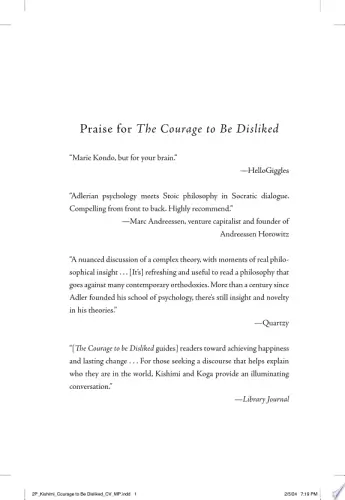
The Courage To Be Disliked
Ichiro Kishimi
We Were Liars
E. Lockhart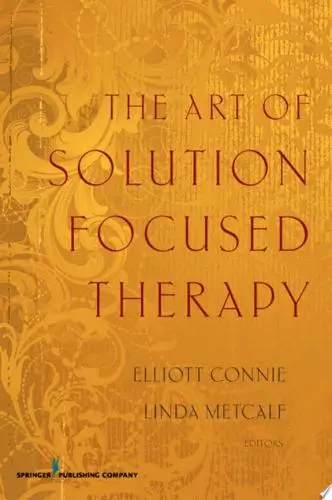
The Art of Solution Focused Therapy
Elliott Connie, MA, LPC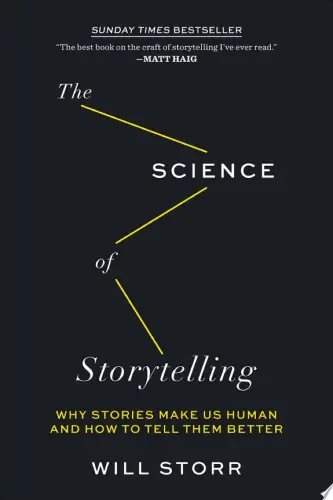
The Science of Storytelling
Will Storr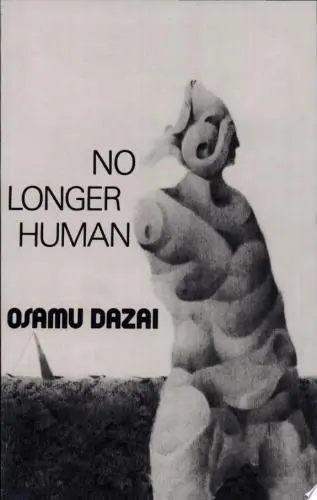
No Longer Human
太宰治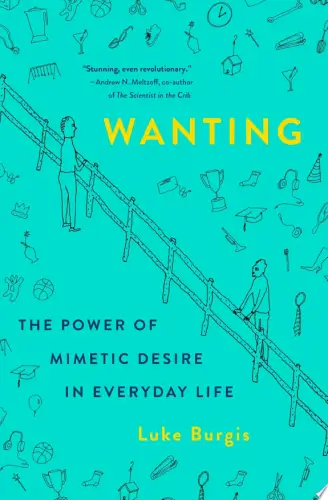
Wanting
Luke Burgis
Mrs Dalloway
Virginia Woolf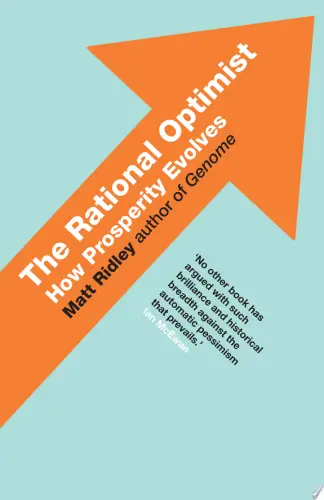
The Rational Optimist
Matt RidleyTrending Summaries

Peak
Anders Ericsson
Never Split the Difference
Chris Voss
Smart Brevity
Jim VandeHei
The Psychology of Money
Morgan Housel
The First 90 Days
Michael D. Watkins
Atomic Habits
James Clear
Thinking, Fast and Slow
Daniel Kahneman
The Body Keeps the Score
Bessel van der Kolk M.D.
The Power of Regret
Daniel H. Pink
The Compound Effect
Darren HardyNew Books

Forex Trading QuickStart Guide
Troy Noonan
Comprehensive Casebook of Cognitive Therapy
Frank M. Dattilio
The White Night of St. Petersburg
Michel (Prince of Greece)
Demystifying Climate Models
Andrew Gettelman
The Hobbit
J.R.R. Tolkien
The Decision Book
Mikael Krogerus
The Decision Book: 50 Models for Strategic Thinking
Mikael Krogerus
Fichte
Johann Gottlieb Fichte
Do No Harm
Henry Marsh
